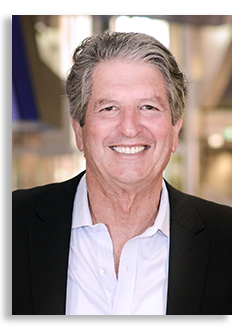
Click image for HiRes
Abstract
PV Tech is putting on a special one-off webinar, free to attend on 5 April 2022.
This article reveals the star-studded speaker line-up for the two-hour webinar, previews the topics to be covered, and discusses some of the themes that have underpinned PV technology, mass production, and financial stability of leading manufacturers within the PV industry over the past decade.
Outline of the webinar on 5 April 2022
The webinar on 5 April 2022 has four invited speakers that are widely acknowledged as leaders across the key themes outlined above.
For the technology part, two talks will address the new technologies that are seeing massive investments this year across the manufacturing value chain: heterojunction and TOPCon.
The heterojunction talk will be delivered by Martin Green of the University of New South Wales (UNSW). Martin barely needs an introduction. The PV industry is still working its way through a technology roadmap that was basically developed by Martin Green’s PV research team at UNSW back in the 1980s. The talk will explain the basics of heterojunction cell design, what the potential is for cell efficiency and the challenges to bring this into volume production today.
Click here to see all available video seminars.
Click here to go to the SPREE HOMEPAGE.
Brief Bio
Martin Green is Scientia Professor at the University of New South Wales, Sydney and Director of the Australian Centre for Advanced Photovoltaics, involving several other Australian Universities and research groups. His group's contributions to photovoltaics are well known and include holding the record for silicon solar cell efficiency for 30 of the last 35 years, described as one of the “Top Ten” Milestones in the history of solar photovoltaics.
Major international awards include:
• 2021 Japan Prize in the category of “Resources, Energy, the Environment, and Social Infrastructure”, in recognition of the more than four decades of research undertaken at UNSW, that developed technologies now ubiquitous in most commercially available solar panels.
• 2018 The Global Energy Prize for research, development and educational activities in the field of photovoltaics that have revolutionized the efficiency and costs of solar photovoltaics, making this now the lowest cost option for bulk electricity supply
• 2018 Celebrated Members of IEEE Electron Devices Society
• 2015 James Cook Medal of the Royal Society of New South Wales
• 2013 Fellow of the Royal Society of London
• 2009 Zayed Future Energy Prize finalist, recognised at the award ceremony for his ground breaking research in photovoltaic (PV) technology that will result in increased efficiencies, bringing solar energy closer to grid parity
• 2008 Winner, 2008 Scientist of the Year Award
• 2006 Finalist, European Inventor of the Year (together with Stuart Wenham)
• 2003 Karl Boer Solar Energy Medal of Merit Award from the University of Delaware
• 2002 Right Livelihood Award for - His dedication and outstanding success in the harnessing of solar energy, the key technological challenge of our age.
• 2000 Millennium Award from the World Renewable Congress 2000 Medal of Engineering Excellence for Distinguished Achievement in the Service of Humanity from the World Engineering Federation (Hannover, 2000)
• 2000 Gold Medal from the Spanish Engineering Academy
• 1999 Australia Prize
• 1995 IEEE Ebers Award
• 1992 CSIRO External Medal
• 1990 IEEE Cherry Award
• 1988 Award for Outstanding Achievement in Energy Research
• 1982 Pawsey Medal (Australian Academy)
Professor Green has been listed by The Stanford University, together with the publishing house Elsevier and SciTech Strategies, as one of the 2% of the best scientists in the world based on their career performance. (Published: 9 October 2020| Version 2 | DOI: 10.17632/btchxktzyw.2)
A list of Prof Green’s Select Publications can be found at the following url: https://research.unsw.edu.au/people/scientia-professor-martin-green/publications
